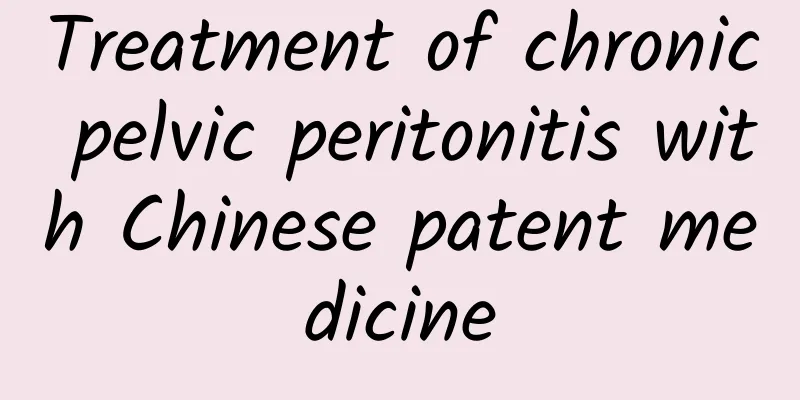Treatment of chronic pelvic peritonitis with Chinese patent medicine

|
Although the symptoms of pelvic peritonitis are not very obvious, it may be life-threatening in severe cases. The treatment is relatively complicated and will bring a lot of inconvenience to life. Nowadays, the treatment is mostly a combination of Chinese and Western medicine. The following is a detailed introduction to the method of treating pelvic peritonitis with Chinese patent medicine. Once pelvic peritonitis is suspected, the corresponding examination should be done immediately, and medication should be started before the results are reported. So, what medicine should be taken for pelvic peritonitis? (1) Initial treatment: Before the results of the dialysis fluid pathogen culture are available, broad-spectrum antibiotics should be used. The routes of administration include intraperitoneal administration and intravenous administration. Intraperitoneal administration is effective and convenient. For patients with Gram-positive cocci infection in sediment smear microscopy, first-generation cephalosporins such as cefazolin can be used as the first choice, with an initial dose of 500 mg/l and a subsequent maintenance dose of 125 mg/l. If it is a Gram-negative bacillus, aminoglycoside antibiotics such as gentamicin and tobramycin should be used, with an initial dose of 1.5-2.0 mg/l and a maintenance dose of 6-8 mg/l. The above two types of drugs can also be used in combination. (2) Adjustment of antibiotics: After the results of pathogen culture and drug sensitivity test are reported, effective antibiotics should be selected based on drug sensitivity, and the course of treatment is generally 10 days. Fungal pelvic peritonitis is poorly treated, so once diagnosed, it is best to remove the catheter and continue with drug treatment. After 48 hours of effective antibiotic treatment, most patients' conditions improve significantly, and occasionally symptoms last for more than 48 hours. If the patient's condition still does not improve significantly after 96 hours, the condition should be re-evaluated and the treatment plan adjusted. |
<<: What are the medicines for pelvic peritonitis?
>>: Treatment of pelvic peritonitis with traditional Chinese medicine
Recommend
What to do if your vaginal discharge is abnormal or even green
What should I do if my vaginal discharge is abnor...
How to avoid gynecological diseases after abortion
After an abortion, the patient will be weak and h...
Endocrine disorders are often the cause of dysmenorrhea
The cause of dysmenorrhea causes people to suffer...
Don't mistake vulvar leukoplakia for vulvar cancer
Vulvar leukoplakia can be divided into hyperplast...
Poor metabolism will lead to constipation and obesity! Beautiful Chinese medicine practitioner: tapping meridians to slim the abdomen and get rid of butterfly sleeves
Since the third-level alert for epidemic preventi...
What causes cervical erosion?
Cervical erosion in young people is a physiologic...
Treatment of pelvic inflammatory disease requires the following:
Pelvic inflammatory disease can cause great harm ...
What to eat after uterine fibroid surgery What anti-inflammatory drugs to take after uterine fibroid surgery
introduce Uterine fibroid surgery is one of the m...
The main care of vulvar leukoplakia is to keep the vulva clean
Vulvar leukoplakia refers to localized or diffuse...
What are the drugs for treating amenorrhea?
Amenorrhea is very common. When patients experien...
Long-term low back pain is caused by pelvic inflammatory disease
Amy is 40 years old. In the past two years, she o...
What are the misunderstandings of women in treating cervical erosion? Women should be careful to avoid falling into two major misunderstandings when treating cervical erosion.
In daily life, many women will rush to seek medic...
What to do if the color of your period is abnormal
What should I do if the color of my period is abn...
Do you know the causes of ectopic pregnancy?
Do you know about ectopic pregnancy? In life, the...
What are the people who are prone to cervical erosion? Can controlling sexual life prevent cervical erosion?
Cervical erosion brings a lot of trouble to women...









